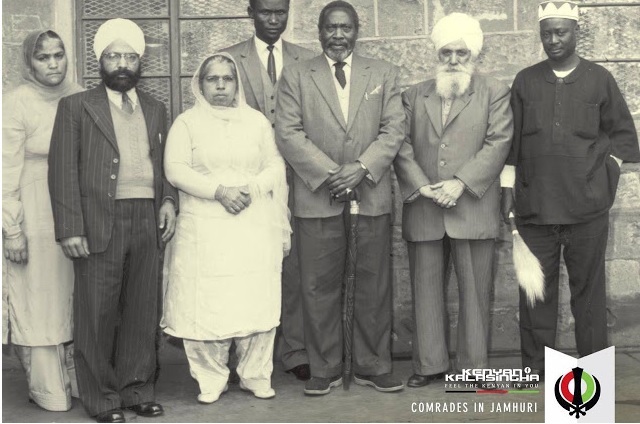This is an overview of the book titled: 1952-56 Crucial years of Kenya Trade Unions which was written by Makhan Singh and edited by Professor B A Ogot. It was published in 1980. It is all about the origin of Kenya Trade Unions.
About the author
Makhan Singh was born in India and traveled and settled in Kenya in 1927 at 14 years old. He was the founder of Punjab Printing Press in Nairobi.
Makhan Singh was a non-violent Marxist throughout his lifetime. His mission in life was to transform the lives of workers through use of peaceful means and in this case he embraced trade unionism as his vehicle. Hence he was at the epicenter of trade unionism in Kenya from 1935 to 1950.
Makhan Singh was one of the earliest trade unionists in Kenya. The Indian leaders of 1930’s and 1940’s were suspicious of Makhan Singh’s socialist ideologies.
In 1935 he transformed the Indian Trade Union into Labor Trade Union of Kenya. He became the secretary of this outfit. The union demanded for a minimum wage of Ksh. 200 per month for workers.
During those times before independence, employers paid hourly and daily wages to workers. The Labor Trade Union advocated for weekly and monthly wages.
Up to 1937, the labor trade union was an Indian Affair and Makhan Singh started efforts to involve Africans in the trade unionism.
in 1939, Jesse Kariuki and George Ndegwa were nominated to represent the interests of Africans in Labor Trade Union. Afterwards, Makhan Singh was keen to expand the activities of his trade union to cover the entire East Africa.
in 1939, the union changed its name to Labor Trade Union of East Africa. The main achievement associated with this union was making popular the technique of striking as it is known today.
A successful strike was organized in 1937 by Makhan Singh. This strike inspired African workers in other parts of Kenyan to organized their own strikes.
In 1940, the colonial authorities decided to send Makhan Singh to India because they knew that the success of trade unionism in Kenya depended on him. He stayed in India for the entire second world war period.
On 22 Aug 1947, Makhan Singh returned to Kenya. The colonial masters were keen from allowing him to re-enter the country. For several occasions the colonial government tried to ask the courts to declare him an illegal migrant but failed. Finally, Judge Nageon de Lestang ruled that Makhan Singh had a right to remain in Kenya since he was a permanent resident.
Entry into Politics
In 1948, Makhan Singh entered into politics using Indian Congress as his political party. However, he did not win trust of the Indian intellectuals and leaders of his own political party. Therefore, he was forced to return to trade unionism.
In 1950 Nairobi was to be elevated to City Status. The plans were for the Duke of Gloucester to present the charter on behalf of King George VI. Fred Kubai and Makhan Singh chose this as the best date to expose the ills of the colonialists.
They called for a meeting at Kaloleni Hall to plan for a boycott of the royal visit. As Makhan Singh later wrote, he remembered that during that time there were two types of Nairobians: the rich and the poor. Since the status of the poor had never changed, they decided that there was nothing to celebrate for them.
The police banned the planned protest by the trade unions. The city administration refused to issue a permit for a protest which was to march through the streets of Nairobi to protest the injustices.
15 May 1950, Fred Kubai and Makhan Singh were arrested in Nairobi for the crime of being leaders of ‘unregistered trade union.’
Makhan Singh was charged before the notorious Justice Ransley Thacker (British lawyer and judge who served in colonial Kenya, served as Attorney General of Fiji and Chief Justice of St. Vincent) before the Supreme Court of Kenya. Kenneth O’Connor, the then Attorney General, was prosecuting the case in Nyeri instead of Nairobi. The case was transferred to Nyeri for fear of protests in Nairobi. Makhan Singh was represented in court by Channan Singh.
Following the recommendations of Thacker, Makhan Singh was exiled to Maralal in Northern Kenya. He remained in that part of the country for 11 years until Oct 1961.
Read More:
- Cuba plans to repay her $270 million with booze!
- Mangosuthu Buthelezi, chief of Zulu people of South Africa, calls for end of Xenophobia
GOT a story? RING Kerosi Dotcom on +254 20 78 64348 or EMAIL info@kerosi.com


